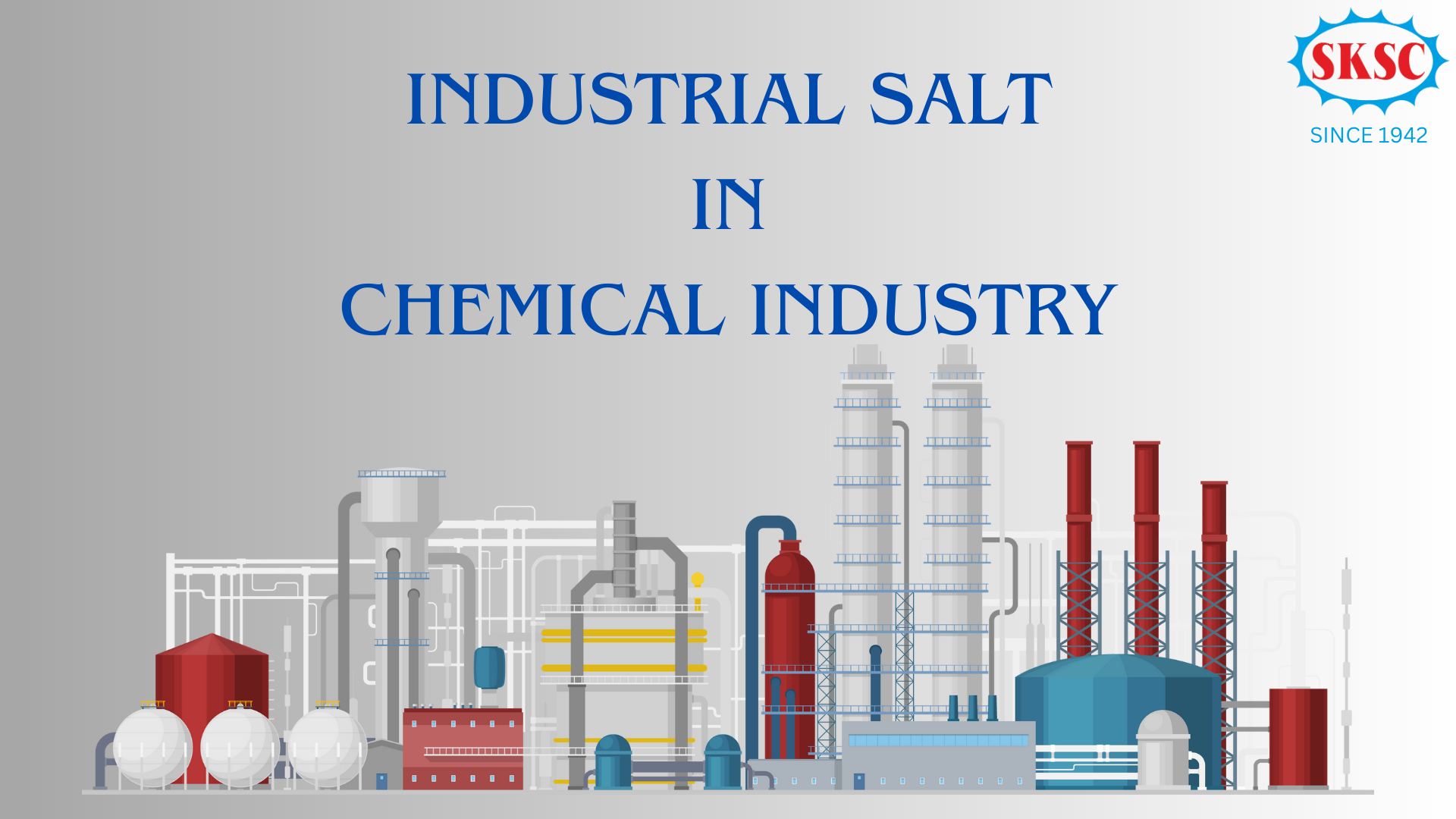
Industrial Salt
Industrial salt:
Industrial salt has two purposes in liquid soap: it alters the appearance of the chemical and the way consumers view a product. An essential ingredient in the production of liquid soap is industrial salt. Depending on the particular use, it can be utilized in the plant to create a concentrated product that can later be diluted in various ways. In the process of dispensing industrial salt soap, industrial salt is frequently used as a de-mineralizing or de-chlorinating agent to remove minerals, iron, aluminum, and chlorine from the water solution.
Thickening agent
Salt is frequently used in industry as a thickening agent. Many liquid soaps and detergents require salt as a key component since it can aid in boosting a liquid solution's viscosity. Because it is less expensive than other types of salt and can assist minimize the quantity of surfactant required to generate an efficient cleaning solution, sodium chloride is frequently used to thicken solutions.
pH adjuster
Salt has the potential to thicken liquids as well as change the pH balance of soap products. Since salt is neutral, it can assist in rebalancing the levels of acidity or basicity in a liquid after adding too much acid or base. By doing this, you can stop any unfavorable chemical reactions or discoloration in your soap goods that can affect the quality for your clients.
Stabilizer
Salt stabilizes the lye solution during the cold process of soapmaking, allowing it to cool more rapidly and evenly, reducing the time needed for saponification in the soap combination. This can be crucial if you're manufacturing a lot of soap or live in a hot, humid climate because greater temperatures and humidity can speed up the saponification procedure.
Lathering
The amount of lather produced by soap or liquid soap is directly proportional to the hardness of the soap. Increased hardness means more bubbles form, which increases the foam. The Handcrafted Soapmakers Guild claims that adding industrial salt to liquid soap increases the lather without increasing the number of bubbles.
Preservative
The main function of industrial salt in liquid soap is to act as a preservative. The soap doesn't need a preservative if you use it for about two weeks, but the salt helps the soap last much longer. If you are making liquid soap from scratch, add 2 tablespoons of table salt after the soap has cooled and before adding the fragrance. Stir the salt into the soap until it is completely dissolved.
Hardener
Water hardness depends on the dissolved salts and other minerals in the water. When the soap solution is made with hard water, the reaction between the metal ions in the hard water and the free fatty acids in the soap creates insoluble soap. This reduces the cleaning power of the soap solution and also gives it a cloudy appearance. To avoid this, industrial salt is added to soap solutions, which makes them harder.
Formation of bubbles
The main function of industrial salt in liquid soap is not to control bubbles formed by surfactants or foaming agents. Surfactants form bubbles when mixed by rubbing your hands together or using other motions against an object, such as a washcloth or sponge. Too little salt creates too much foam. However, too much salt prevents full foaming, which makes cleaning difficult because rubbing your hands or against an object does not create friction.
By increasing the salt content
When you add salt to your soap recipe, you increase the salt content. Too much salt can make your soap too hard and cause a condition called "cramping". Sticking occurs when the soap becomes so thick after adding salt that it cannot be poured into the mold. It is similar to freezing. If you accidentally add too much salt or the soap becomes sticky, don't throw it away. Instead, switch to a new product, such as bath salts or detergent.
Cleaning capacity
The cleaning power of liquid soap can be improved with industrial salt, increasing its surface tension. Surface tension measures how difficult it is for a liquid or gas to penetrate another substance. The higher the surface tension, the cleaner the item is washed with this solution.
Removal of fat
Industrial salt can also be used as a by-product to remove grease left over from liquid soap after cooking or boiling. The mixture of fat and industrial salt is stirred over high heat until all the fat is removed from the solution.
Packing
The essence of industrial salt in liquid soap is to improve the cleaning power of the soap and meet the customer's requirements. In general, soap cleaner can achieve a penetrating cleaning effect after softening with water. Soap usually consists of active ingredients, water, dirt, grease and additives. If you scrub them with soap or running water, they may dissolve or wash away.
S.K.S.C.NADARAJAN & BROR.
Salt company since 1942
Tuticorin Salt | India Salt | Tamil nadu Salt | Salt company Tuticorin | Salt company tamil
nadu | Salt company India | India old salt company | SKSC salt | salt Thoothukudi | salt exporter
tuticorin | Thoothukudi salt | Sea salt Thoothukudi | Sea salt tuticorin | Thoothukudi traditional
salt | Thoothukudi salt exporter | deicing salt tuticorin | deicing salt exporter | Tuticorin saltern |
thoothukudi saltern | South India salt company | South indian salt export | Kerala salt supplier |
Salt supplier
